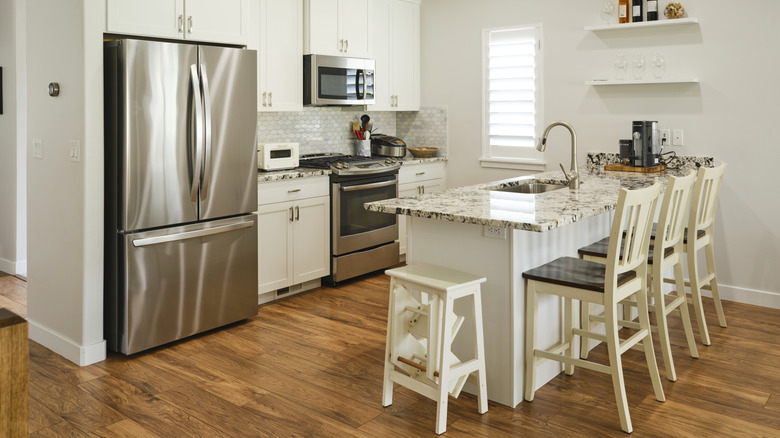How To Choose A More Energy Efficient Refrigerator For Your Kitchen
The refrigerator is among the most frequently used, hardest-working, and most energy-consuming appliances in the average home. If you have noticed signs that it's time to replace your fridge, there are many reasons to consider an energy efficient option. Newer appliances with better efficiency ratings offer benefits for your wallet, the environment, and performance. You can choose a more energy efficient refrigerator for your kitchen by purchasing the right size, looking for innovative features that reduce power consumption, and investing in an Energy Star rated appliance.
Refrigerators are among the home appliances that use the most energy. This appliance is responsible for a significant portion of monthly utility costs, since it is always running. Rising energy costs make lowering usage a bigger priority for many people. An energy efficient refrigerator uses as much as 73% less energy than a refrigerator manufactured in the 1970s, due to improvements and advances in insulation, refrigerants, and compressors.
Sustainability is another reason more people are making the switch to energy efficient appliances. A newer refrigerator that requires less power to operate will reduce your home's carbon footprint. You will also enjoy better performance with innovative features, such as smart technology, digital temperature controls, and advanced cooling technology, which can help keep food fresh for longer.
Selecting an energy efficient appliance
When choosing an energy efficient refrigerator, select the size that is best suited to your family and the available space, leaving at least an inch of clearance around the fridge for airflow. Where you place your fridge could be costing you money, if there isn't sufficient clearance. An energy saver switch is an innovative feature that enables you to turn down the heating coils to prevent condensation and lower your energy costs by up to 10%. Some features reduce energy efficiency, such as icemakers and dispensers. These may be convenient, but they increase energy usage by 14% to 20%.
The type of refrigerator design can impact energy efficiency, such as a top-mounted freezer refrigerator or side by side units. The freezer on top and refrigerator on the bottom is the most energy efficient style, due to the heat generated by the compressor. The compressor is located near the bottom of the refrigerator, and the heat makes it harder for bottom freezers to stay cold, which uses more energy.
You may want to choose a refrigerator with an Energy Star rating. The Environmental Protection Agency (EPA) created the Energy Star symbol to help consumers evaluate the energy efficiency of their appliances to save money and reduce air pollution. Refrigerators with this rating are considerably more efficient than the minimum standards set by the government. This information can help you compare models to select the best fridge for your kitchen.

